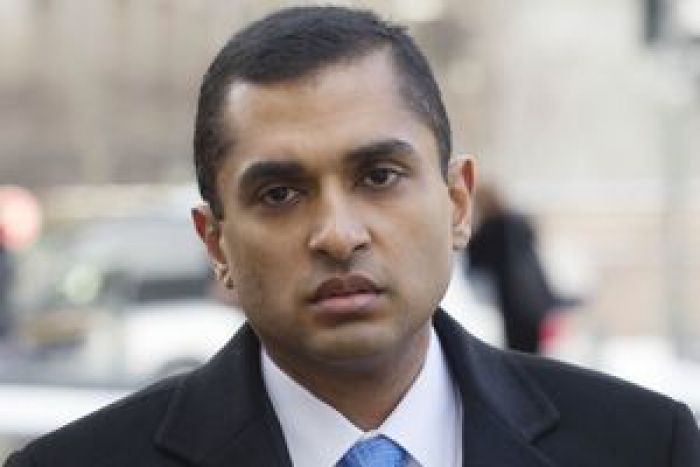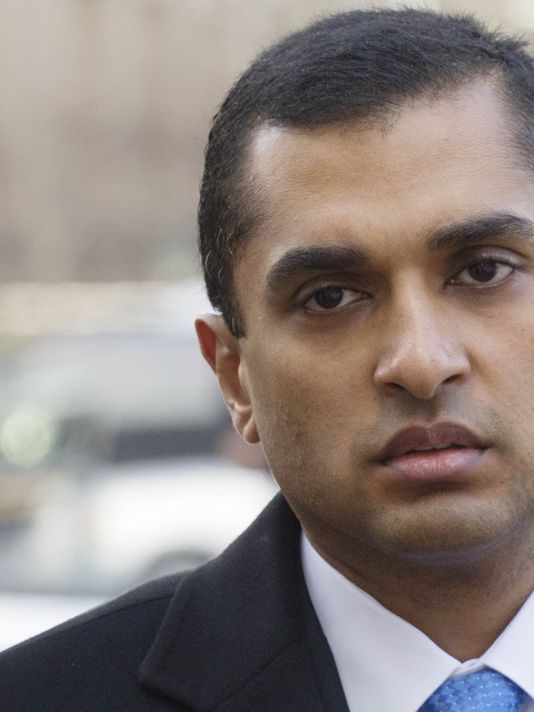Martoma's insider-trading conviction upheld


File photo shows Mathew Martoma, a former SAC Capital portfolio manager, arrives at Manhattan federal court in Feb. 2014.(Photo: Mark Lennihan - AP)
NEW YORK — The insider trading conviction of former SAC Capital portfolio manager Mathew Martoma was upheld Thursday by a federal judge.
Dealing a legal setback to the former financial lieutenant for billionaire hedge fund manager Steven Cohen, U.S. District Court Judge Paul Gardephe ruled that "the evidence at trial overwhelmingly demonstrated Martoma's guilt" in what prosecutors called history's most profitable insider-trading scam.
A Manhattan federal court jury in New York City convicted[1] Martoma in February on charges of conspiracy and securities fraud.
The case focused on evidence that Martoma illegally obtained disappointing results of clinical tests on an experimental Alzheimer's disease drug before the news became public in 2008 — and then triggered an SAC Capital sell-off of pharmaceutical company stocks that generated $276 million in profits and avoided losses.
Martoma got the information by cultivating friendships with two doctors who had access to some of the drug trial data and shared it with him. They testified during Martoma's trial that they knew he planned to trade on the secret information.
Martoma ultimately netted a nearly $9.4 million bonus from the transactions, trial evidence showed.
Gardephe's ruling clears the way for Monday's scheduled sentencing of the 40-year-old father of three. Prosecutors have recommended that Gardephe sentence Martoma to more than the eight-year term recommended by probation officials, plus forfeiture equal to the 2008 bonus and a financial fine.
Martoma's defense lawyers, who had argued prosecutors failed to proved Martoma's guilt beyond a reasonable doubt, have recommended[2] more "lenient" punishment, and no fine.
"Mr. Martoma is not perfect, but he is a good man," defense attorney Richard Strassberg wrote in a May sentencing memo in which he noted that others recently convicted on insider trading charges received relatively short prison sentences.
Strassberg also argued that Martoma had been punished enough by the permanent end of his Wall Street career and public disclosure just before the trial of his 1999 expulsion from Harvard Law School for falsifying a transcript of his grades.
"To prevent a sentence disparity, to recognize his lower level of culpability relative to other insider trading cases ... we respectfully request leniency in his sentence," wrote Strassberg.
Read or Share this story: http://usat.ly/1o2THFt
References
- ^ http://www.usatoday.com/story/money/business/2014/02/06/martoma-verdict/4958709/ (rssfeeds.usatoday.com)
- ^ http://www.usatoday.com/story/money/business/2014/05/28/martoma-defense-sentencing-memo/9514095/ (rssfeeds.usatoday.com)









